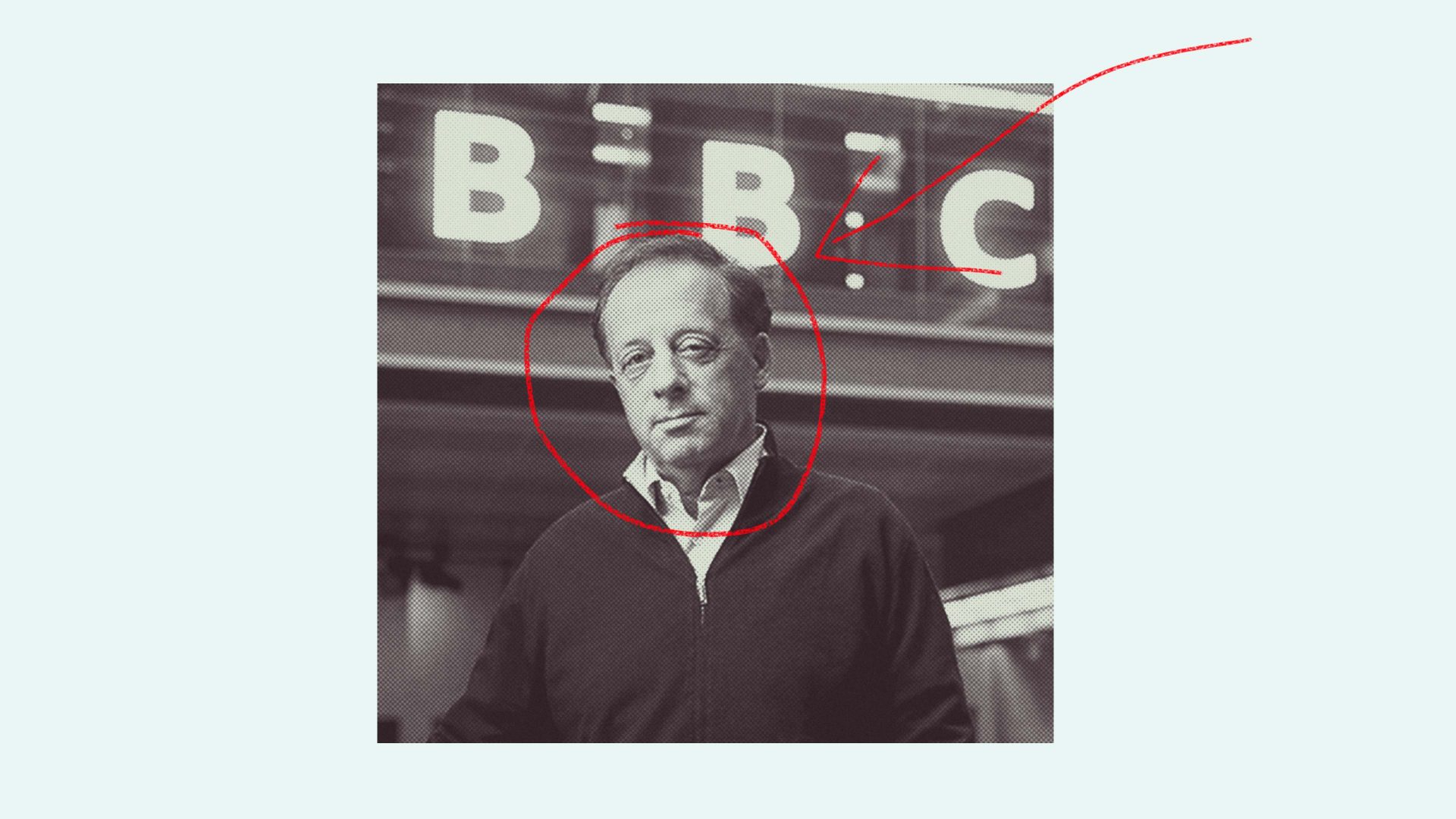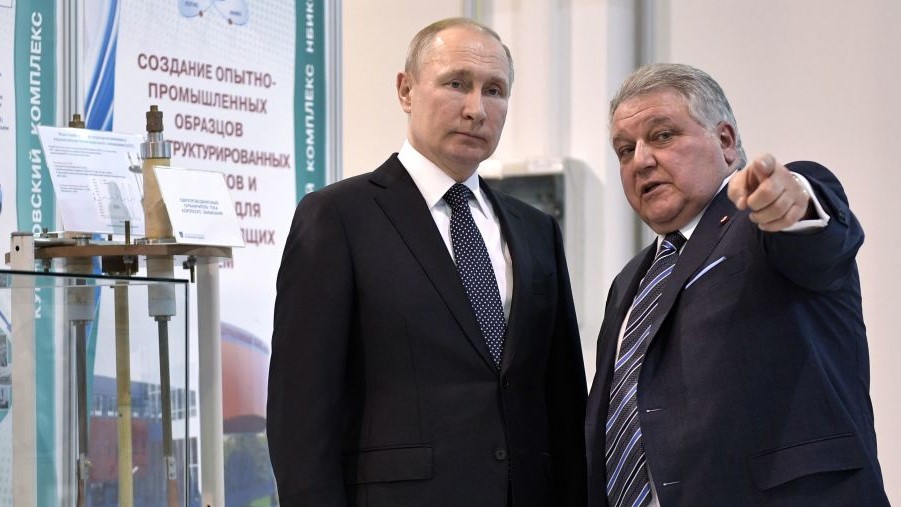Richard Sharp cut a predictably forlorn figure at the Sir Harry Evans Global Summit in Investigative Journalism Summit in London last week. The event was organised by Tina Brown to celebrate her late husband – the fearless former Sunday Times editor – and ethical journalism that held power to account. The outgoing BBC chair, now best known as a loan arranger to former prime minister Boris Johnson, was hardly the greatest exemplar of that.
All around Sharp, with his body still warm, the chatter among the media classes was of who will succeed him. Lucy Frazer, the relatively new culture secretary, has by all accounts decreed she wants a woman for the job, and – after the excruciating embarrassment Sharp caused the Tories – someone not seen to be too slavishly affiliated to the party. One of two new names in the frame is Lady Floella Benjamin, who sits on the Lib Dem benches in the Lords. The former BBC children’s presenter and actress has sat on several high-profile boards, including the Bafta Council, the Windrush Commemoration Committee, the British Board of Film Classification and Ofcom.
The Tory peeress Tina Stowell is also a serious contender. A former civil servant, she worked for the BBC in top admin roles before going on to become leader of the House of Lords. She chaired the Charity Commission from 2018-2021 and is now presiding over the Lords Communications and Digital committee.
Two former newspaper editors – Lady Patience Wheatcroft and Sarah Sands – are also still being touted. Sands’s closeness to Johnson – she used to have his photograph hanging on the wall of her office during her Telegraph days, and championed him as mayor of London when she edited the London Evening Standard – is seen to count against her. There was also her somewhat controversial period presiding over the Today programme and a short, disastrous innings as editor of the Sunday Telegraph.
Wheatcroft isn’t in favour with the powers-that-be after switching from the Tory benches to the cross-benches and – while once reliably Conservative – has made her opposition to Brexit abundantly clear, particularly in these pages. The clever money appears to be on Benjamin.
Meanwhile, most of the illustrious line-up of speakers at the Harry Evans Summit got along famously, but there was an amusing tension between John Ryley, the former head of Sky News, and Deborah Turness, the current CEO of BBC News and Current Affairs. Ryley casually referred to the BBC as “state-funded”, which caused a riled Turness to point out it was actually licence fee payer-funded. This was a raw wound for her, as she had only lately had the same argument with Twitter after the social networking site had employed the same description.
The reality is that the government sets how much money the BBC receives from licence fee payers in its periodic reviews, so essentially the state does still have its hands on the purse strings. The current licence fee settlement will be in force until March 2028 and, in terms of future funding, the House of Lords Communications and Digital Committee is yet to decide.
Nigel Farage was famously branded a bully in a letter written by one of his teachers at Dulwich College in south London, but that didn’t stop him using the same phrase against TNE’s Alastair Campbell over his robust exchanges with the former Brexit Party MEP Alex Phillips on Newsnight last week.
“Alastair Campbell is a thug and a bully who showed his true colours,” harrumphed Farage on Twitter, which prompted an interesting response from the object of his ire. Campbell disclosed that Farage had asked him to co-present a show with him on GB News – or “GBeebies” as he called it – which he had refused to do. Campbell added for good measure that Farage was bitter that it was Rory Stewart rather than him who got to spar with him on his The Rest Is Politics podcast.
I last saw Farage on Twitter apparently beginning a striptease, which for health reasons I chose not to watch to the end.
Bournemouth was an inauspicious choice for the first conference of the Conservative Democratic Organisation – also known as the BBC, or Bring Back Boris Campaign – that attracted such die-hard loyalists as Priti Patel, Jacob Rees-Mogg and Nadine Dorries.
The last party to have a conference in the jaded seaside resort was the Lib Dems, just before the general election when Jo Swinson reached peak hubris as leader and Chuka Umunna had his last hurrah. The Tories haven’t held an official conference in the town since 2006, and Labour since 2007.
The town has the misfortune to have the Johnson fanboy-in-chief, Conor Burns – when he is not being suspended – as its MP. He, needless to say, also spoke at the conference. His seat, once seen as one of the safest in the country, is now very much up for grabs at the next election.
After voting for Brexit, Bournemouth is in deep remorse, with the Lib Dems establishing themselves on May 4 as the dominant force on the local council. Boarded-up shops and crime – a man was stabbed in the town centre as the Johnson loyalists gathered – tell their own story.
The boss of the Dorset Chamber of Commerce complained recently that Brexit was having a “serious detrimental impact on exports” across the whole county and is “not delivering the positives that were promised”. Unreported in the Daily Mail’s coverage was the fact that demonstrators gathered outside the conference venue to tell members of the CDO they were not welcome.
Glaswegians know that it was winning the accolade European City of Culture 1990 that began the hugely successful global repositioning of the city as a centre for culture and the arts. The impetus of the EU initiative also accelerated regeneration and urban renewal across the city.
That was recognised on May 9 – Europe Day – when Glasgow City Council held an event to confirm the city’s European credentials. Councillors later passed a motion to remind the world that more than two-thirds of Glaswegians voted Remain and “had their European citizenship removed against their will”. Jacqueline McLaren, the city’s Lord Provost – she chairs council meetings and acts as the city’s ambassador – was awarded honorary membership of the European Movement in Scotland.
So perhaps it is not surprising that despite recent polls, the city and Scotland itself may yet prove a steep uphill climb for Labour while it remains a pro-Brexit party. A well-informed friend there tells me: “Don’t write off the SNP just yet. Labour’s position on the EU – and the Lib Dems’ ambivalence – will be an open door for the party at the next election. Keep an eye out, too, for the Scottish Greens, who are both pro-independence and pro-EU, and are a good option for voters put off the SNP by the recent headlines.”




